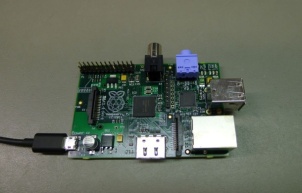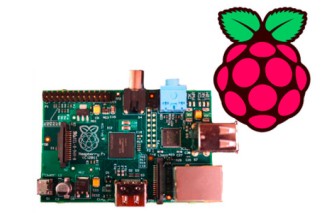 The machine runs on Linux, an open-source operating system, and is relatively easy to interface to other devices. It can be connected to a typical computer monitor with additional ports to attach a keyboard, mouse as well as an ethernet for high-speed internet connectivity. The Pi's inventors have drawn inspiration from the BBC Micro, a project produced by Acorn that was adopted by British schools. BBC Basic, the programming language on the devices, served as an introduction to programming.
The machine runs on Linux, an open-source operating system, and is relatively easy to interface to other devices. It can be connected to a typical computer monitor with additional ports to attach a keyboard, mouse as well as an ethernet for high-speed internet connectivity. The Pi's inventors have drawn inspiration from the BBC Micro, a project produced by Acorn that was adopted by British schools. BBC Basic, the programming language on the devices, served as an introduction to programming.The model that is currently available costs £22, however a cheaper version priced £16 will go on sale later this year. The Raspberry Pi Foundation claims it has already produced thousands of the machines, using a manufacturer in China but the volumes are likely to increase soon. The Foundation originally planned to open production in the UK however it was not possible to do so at the convenient price. The company has already set up deals with two distributors that agreed to handle orders and deal with manufacturers. Thanks to this success the foundation can now focus more on teaching the programme instead of concentrating on sales.

The timing to launch the product could not be better and the hopes for product’s success are running high. The Department of Education is currently looking to focus more on specific skills, like fundamental programming, when teaching computer science at school. Therefore, bear-bone machines like Pi are thought to encourage children to code and play an important role in future IT education. Ian Livingstone, co-author of the Next Gen report, suggests there is a need for an examination of how computer science taught in UK schools could better meet needs of visual effects industries. The report also stresses a general need for teachers's professional training in computer science. Despite the Raspberry Pi being simple enough to be used by non-specialists, in order to get the most out of the experience some level of IT expertise may be required.
The supporters of this initiative believe that the community that has emerged around the Pi will help with its innovation, improvements and creation of additional software. Further development will be possible because of the experience shared between owners the devices.
For the interested here are the specifications of Raspberry Pi:
Cost: Model A $25 (£16) and Model B $35 (£22)
Weight: 45g
Dimensions: 86mm x 54mm x 17mm
Power: 5v micro USB
Processor: ARM 11, 700MHz
Memory: Model A, 128MB and Model B 256MB
Connectivity: 10/100 wired Ethernet on model B
Operating system: RISC OS, Linux. Debian, Fedora and ArchLinux will be supported from the start.
Source: Raspberry Pi


No comments:
Post a Comment